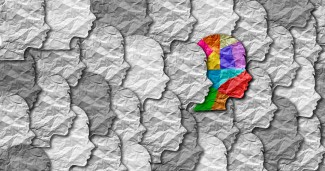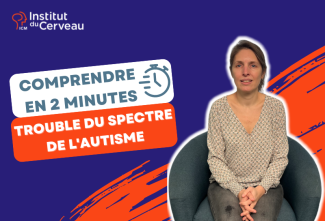The team co-led by Inserm researcher Mathias Pessiglione, in collaboration with a Canadian team, studied mimetic desire in people with autism to explain how they experience social interaction and motivation.
Diagnosing autism
An ASD diagnosis is based on:
- 3 signs of the social interaction/communication dimension
- At least 2 signs of the behaviors and interests dimension
- Signs present since early childhood
- A significant impact on the person’s life
In addition, the signs cannot be explained by another neurodevelopmental or mental health disorder.
The level of severity then needs to be identified (from three different potential levels), and whether the ASD is combined with:
- An intellectual development disorder
- Language difficulties
- A known environmental or genetic factor
- Another neurodevelopmental or mental health disorder
At Paris Brain Institute
The team co-led by Inserm researcher Mathias Pessiglione, in collaboration with a Canadian team, studied mimetic desire in people with autism to explain how they experience social interaction and motivation.
Mimetic desire is a person’s spontaneous desire for the same things as other people. In children, for example, this could be to have the same toy as their classmate.

People with ASD often feel very unsettled by changes in their environment, such as changes in furniture layout at home, or a change of teacher at school. They often exhibit repetitive behaviors such as rocking or clapping their hands. Patterns of repetition, such as eating the same foods at each meal, or watching the same video every day, can also be observed.
Children and adults with autism may exhibit very specific, narrow and sometimes peculiar interests, such as electric motors, bin bags or traffic signs.
Sensory symptoms can manifest as hyper or hypo reactivity to smell, temperature or pain.
People with autism frequently have one or more associated disorders (psychiatric disorders or other disorders, e.g. heart problems, neurological problems, etc.).
Around one third of people with autism also have an intellectual development disorder (i.e. a disorder with an IQ below 70).
It is estimated that 1 in 5 people with autism suffers from epilepsy.
Some patients have special abilities that are highly focused and specialized, such as a strong aptitude for mental calculus or enhanced pitch perception. However, these abilities are rare and are not part of the diagnostic criteria.


